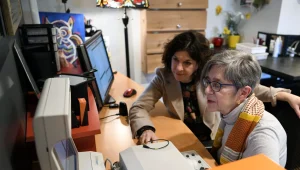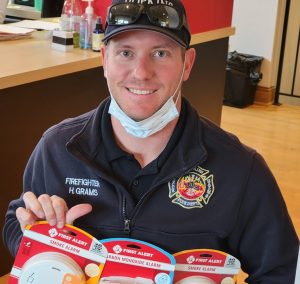Tinnitus & Relaxation Therapy
Tinnitus cannot be cured but it can be managed. The first thing to do is see an audiologist and find the best tinnitus and relaxation therapy for you.
Tinnitus, often known as “ringing in the ear”, is a common problem.
The CDC estimates that 15% of the general population, about 50 million people, suffer some form of the condition. It can be acute or chronic, constant or irregular, tonal or pulsatile. Generally, there are two types:
SUBJECTIVE TINNITUS:
Head or ear noises that are perceivable only to the specific patient. More than 99% of all tinnitus reported tinnitus cases are of the subjective variety.
OBJECTIVE TINNITUS:
Head or ear noises that are audible to other people, as well as the patient. These sounds are usually produced by internal functions in the body’s circulatory (blood flow) and somatic (musculoskeletal movement) systems.
Objective tinnitus is very rare, representing less than 1% of total tinnitus cases.
TINNITUS IS NOT A DISEASE IN AND OF ITSELF, BUT RATHER SYMPTOMS OF SOME OTHER UNDERLYING HEALTH CONDITION.
While it is often associated with hearing loss, there are roughly 200 different health disorders that can generate tinnitus as a symptom; such as middle ear obstructions, TMJ (temporomandibular joint) disorders, brain injuries, and as a side effect of prescription medications.
No matter the cause, tinnitus can be debilitating; resulting in anxiety, depression, irritability, poor concentration, and social isolation.
THE NEWS IS NOT ALL BAD.
Tinnitus cannot be cured but it can be managed. The first thing to do is see an audiologist. These hearing professionals will be able to correctly measure and evaluate each patient’s tinnitus case.
Once that is done, your hearing professional will be able to recommend options best for you and
your situation. They may recommend hearing aids, sound masking techniques, and behavioral therapies and may talk to your primary doctor about your current drug regimen and/or medications to treat some of the side effects of tinnitus.
THERE ARE EVEN THINGS YOU CAN DO AT HOME:
Diet: a healthful diet can reduce high blood pressure, increase energy levels and contribute to an overall feeling of good health. You
can also determine if caffeine has an effect on your experience with your tinnitus.
Exercise: can increase blood flow and reduce stress (which often exacerbates symptoms).
Hearing Protection: this may be especially helpful if you have extreme sound sensitivity.
Social Activity: many with tinnitus feel isolated. Sharing these feelings will help create a peer support network.
Our team at Hears to U Audiology wants you to know you are not alone. We have the knowledge and expertise to help you manage your tinnitus. We offer different types of treatment and stay on top of the research.
Frequently Asked Questions
What is tinnitus therapy?
It’s a combination of sound therapy, counseling, and lifestyle strategies designed to reduce the impact of tinnitus and improve quality of life.
Can tinnitus be cured?
There isn’t a universal cure, but many people experience significant relief through treatment and management techniques.
What makes tinnitus worse?
Stress, loud noise, poor sleep, certain medications, and caffeine can increase tinnitus for some people. Part of therapy is figuring out your specific triggers.

Audiologist Near Me
Are you or a loved one struggling to hear the world around you? Navigating the journey to better hearing can feel overwhelming, but finding the

Discover the Widex Difference: Superior Sound Quality at Hears to U Audiology
Widex Hearing Aids: The Sound of Natural Hearing At Hears to U Audiology in Hopkins, Minnesota, we’re passionate about helping our patients experience the best

Comprehensive Hearing Tests in Minnesota: Your Guide to Evaluating Hearing Health
Understanding Requirements for Hearing Tests in Minnesota for Hearing Aid Fittings Hearing tests are important for several reasons: Early Detection of Issues: They help identify

Enhancing Firefighter Safety: Protecting Hearing Amidst Critical Communication
Improving Firefighter Communication in Noisy Environments In the dynamic world of firefighting, effective communication can mean the difference between safety and chaos. At Hears to
